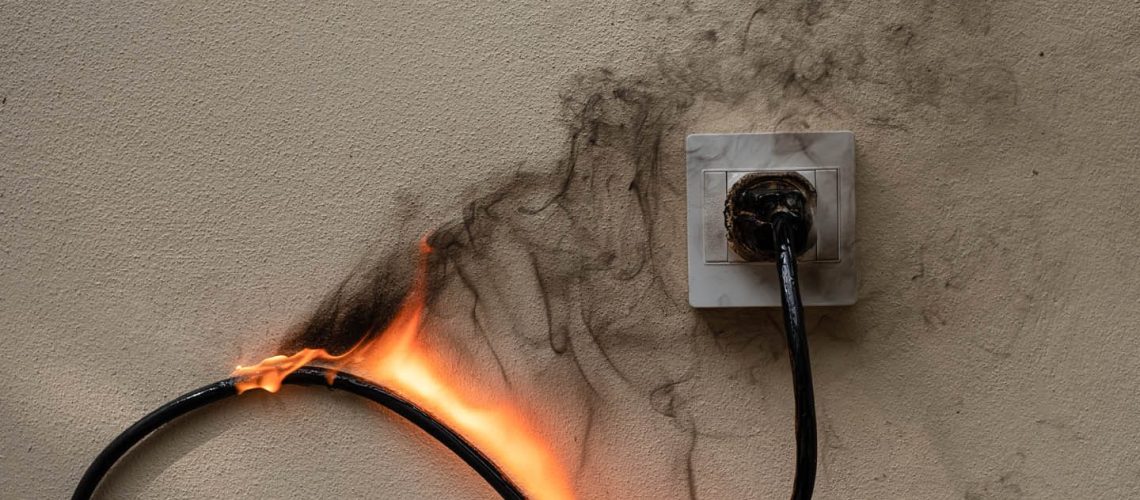Electrical systems are the nerve center of a home, powering our daily lives with the flip of a switch. However, beneath the surface, homes may harbor electrical issues that, if undetected, can pose serious safety risks. Home inspectors, equipped with knowledge and a keen eye, play a pivotal role in uncovering common electrical problems that homeowners may not be aware of. In this comprehensive guide, we’ll explore the most frequent electrical issues discovered by home inspectors, shedding light on the importance of addressing these concerns for a safe and efficient living environment.
1. Outdated Wiring Systems
Issue: Aging Wiring Systems Unable to Keep Pace
One of the most prevalent electrical problems identified by home inspectors is outdated wiring. Homes built several decades ago may still have knob-and-tube or aluminum wiring, which can be inadequate for the demands of modern electrical use.
Why It Matters:
Outdated wiring systems may pose fire hazards, lack the capacity for today’s electrical needs, and may not meet current safety standards. Home inspectors emphasize the importance of upgrading to modern wiring to ensure safety and efficiency.
2. Overloaded Circuits
Issue: Circuits Overburdened by Modern Electrical Demands
With the increasing number of electrical devices in modern homes, overloaded circuits are a common issue. Home inspectors often find circuits supporting more devices than they were designed for, leading to potential overheating and fire risks.
Why It Matters:
Overloaded circuits can result in overheating, tripped breakers, or damaged electrical devices. Home inspectors recommend redistributing loads or installing additional circuits to prevent safety hazards associated with overloaded systems.
3. Faulty Outlets and Wiring Connections
Issue: Loose or Damaged Electrical Connections
Faulty outlets, loose wiring connections, or damaged receptacles are common electrical problems discovered by home inspectors. These issues can lead to electrical arcing, shocks, or even fires.
Why It Matters:
Loose or damaged connections increase the risk of electrical arcing, potentially causing fires or damaging connected devices. Home inspectors stress the importance of repairing or replacing outlets with any signs of damage or instability.
4. Inadequate Grounding
Issue: Lack of Proper Grounding in Electrical Systems
Inadequate grounding is a safety concern frequently identified by home inspectors. Homes without proper grounding may experience electrical shocks, equipment damage, or face increased vulnerability to power surges.
Why It Matters:
Proper grounding is essential for electrical safety, helping to prevent electrical shocks and protect sensitive electronic equipment. Home inspectors emphasize the need for grounding upgrades to enhance the safety of the electrical system.
5. Alarming Lack of GFCI Protection
Issue: Absence of Ground Fault Circuit Interrupter (GFCI) Outlets
GFCI outlets are a crucial safety feature in areas prone to moisture, such as kitchens, bathrooms, and outdoor spaces. Home inspectors frequently find homes lacking GFCI protection, increasing the risk of electrical shocks.
Why It Matters:
GFCI outlets provide protection against electrical shocks in wet or damp conditions. Home inspectors stress the necessity of installing GFCI outlets in appropriate locations to enhance electrical safety, especially in areas where water is present.
6. Obsolete or Unsafe Electrical Panels
Issue: Outdated Electrical Panels Unable to Meet Modern Demands
Outdated or unsafe electrical panels, such as those with Federal Pacific Electric (FPE) or Zinsco breakers, are common discoveries made by home inspectors. These panels may not meet current safety standards and can pose fire hazards.
Why It Matters:
Obsolete electrical panels may fail to trip in the event of an overload, leading to overheating and fire risks. Home inspectors recommend replacing outdated panels with modern, code-compliant alternatives to ensure electrical safety.
7. DIY Electrical Work Gone Wrong
Issue: Electrical Installations or Repairs Conducted by Unqualified Individuals
Homeowners attempting DIY electrical work without the necessary expertise often create safety hazards. Home inspectors frequently uncover improperly installed outlets, switches, or wiring.
Why It Matters:
DIY electrical work can result in fire hazards, electrical shocks, or damage to the electrical system. Home inspectors stress the importance of hiring qualified electricians for electrical installations and repairs to ensure safety and compliance with electrical codes.
8. Flickering Lights and Voltage Fluctuations
Issue: Inconsistent Voltage Supply and Flickering Lights
Flickering lights, voltage fluctuations, or intermittent power issues are common electrical problems identified by home inspectors. These issues may result from problems within the home’s wiring or disruptions in the power supply.
Why It Matters:
Inconsistent voltage can damage sensitive electronics, cause premature failure of appliances, and pose fire risks. Home inspectors recommend investigating and resolving the root cause of flickering lights or voltage fluctuations to maintain a stable electrical supply.
9. Exposed Wiring or Unsafe Wiring Practices
Issue: Unprotected or Improperly Installed Wiring
Exposed wiring or unsafe wiring practices, such as running wires under carpets or using extension cords as permanent wiring solutions, are safety concerns frequently uncovered by home inspectors.
Why It Matters:
Exposed or improperly installed wiring increases the risk of electrical shocks, fire hazards, and damage to the wiring itself. Home inspectors stress the importance of securing wiring in approved conduits and avoiding unsafe wiring practices.
10. Lack of Electrical Maintenance
Issue: Neglected Electrical Systems Without Routine Maintenance
Many homeowners neglect routine electrical maintenance, leading to the gradual deterioration of the electrical system. Home inspectors often find evidence of neglected electrical components, such as dirty electrical panels or corroded connections.
Why It Matters:
Lack of maintenance can result in increased wear, overheating, and reduced efficiency of electrical components. Home inspectors stress the importance of regular electrical inspections and maintenance to identify and address potential issues before they escalate.
Conclusion
The electrical system, a silent force powering our homes, requires careful attention to ensure safety and efficiency. Home inspectors, through their detailed examinations, play a crucial role in uncovering common electrical problems that may go unnoticed by homeowners. From outdated wiring to overloaded circuits and DIY electrical work gone wrong, addressing these concerns is paramount for maintaining a safe and reliable electrical system. In the realm of homeownership, proactive measures, regular inspections, and timely repairs are key to mitigating the risks associated with common electrical problems and ensuring the safety of all occupants.
For other issues that home inspectors commonly find, read our article, Uncovering a Home’s Dirty Secrets.


